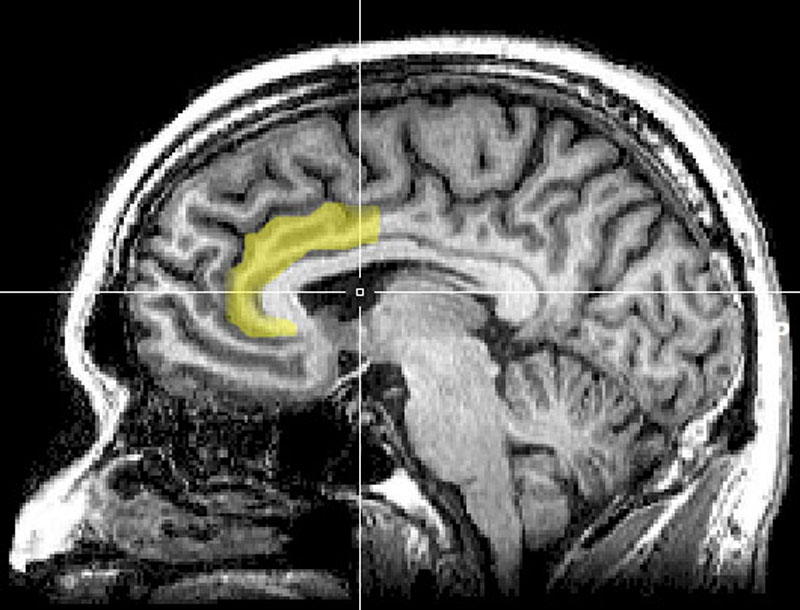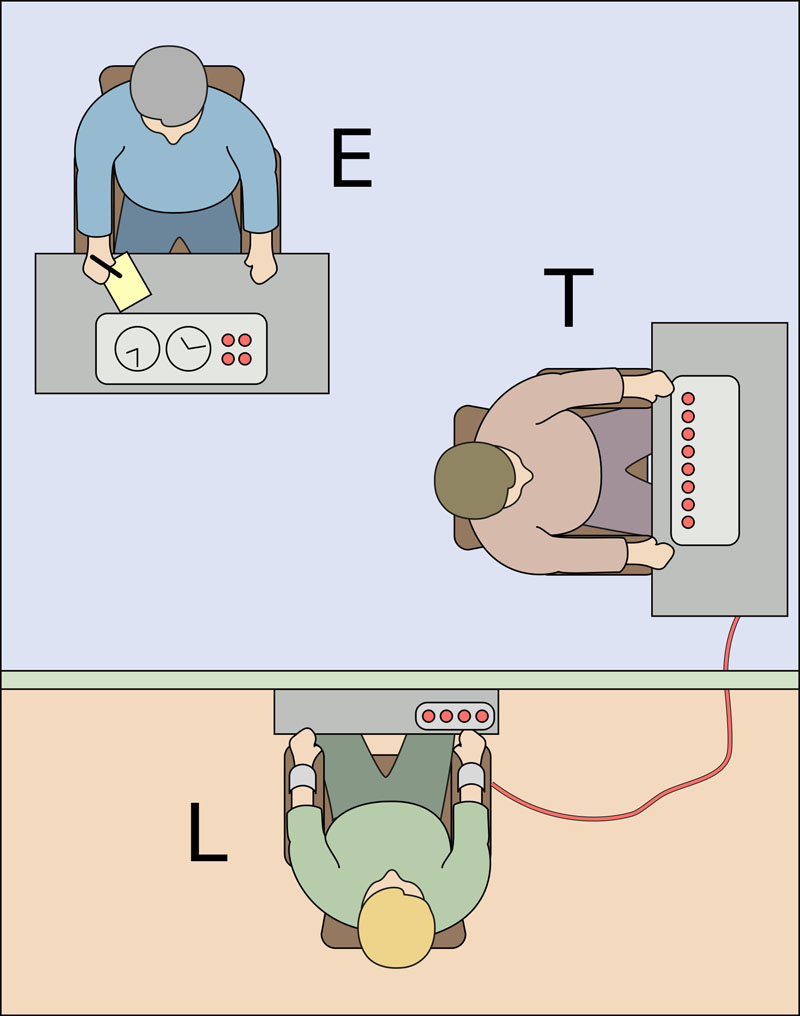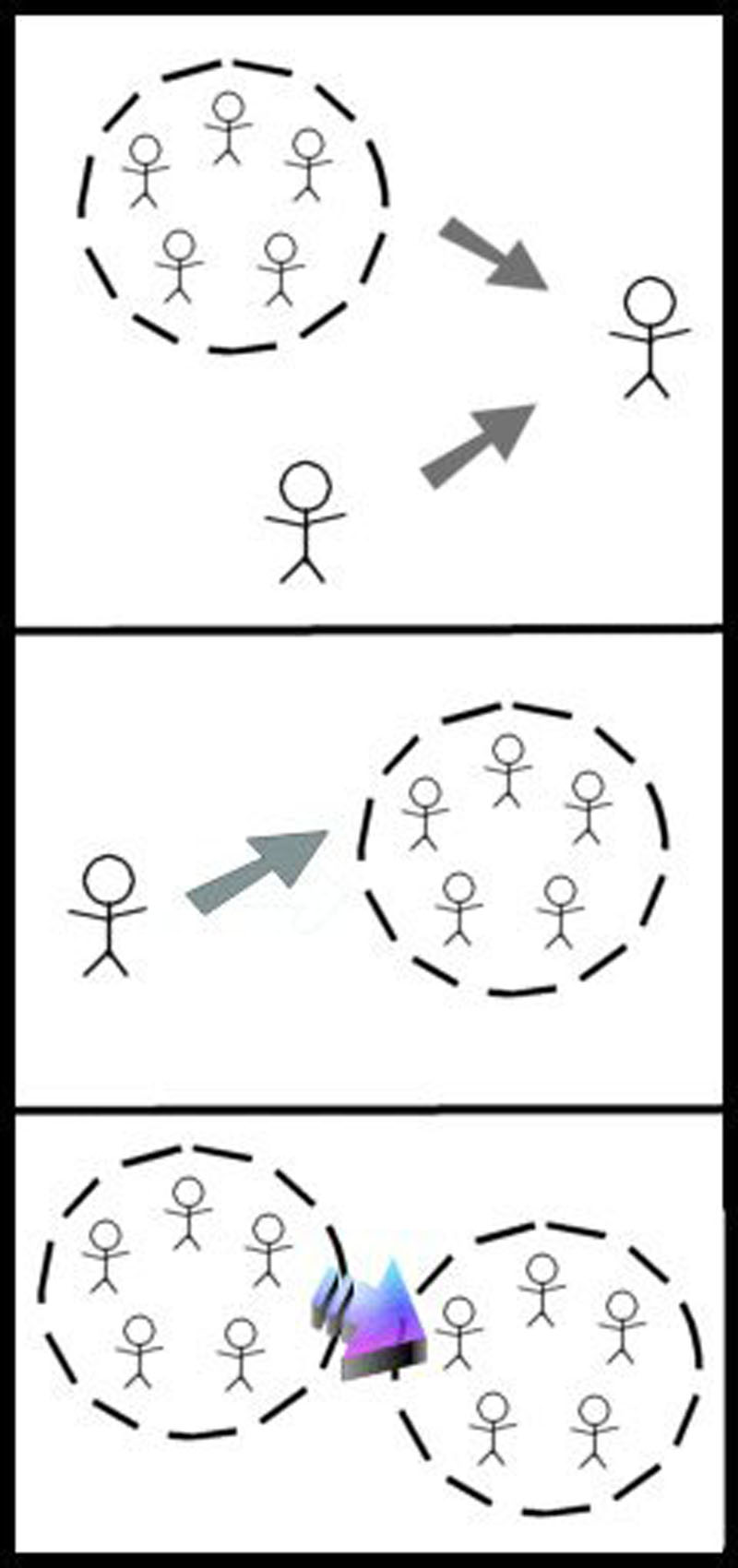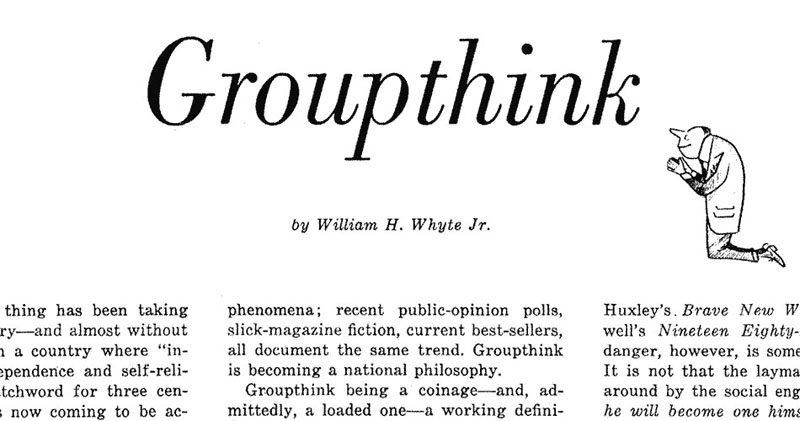Interaction and Social Behavior
Social Influence
- Social psychology is the scientific study of how people's thoughts, feelings, and behaviors are influenced by the actual, imagined, or implied presence of others.
- Social constructionism is a theory of knowledge that examines the development of jointly constructed understandings of the world. A major focus is to uncover the ways in which individuals and groups participate in the construction of their perceived social reality.
- Game theory is the study of mathematical models of conflict and cooperation between intelligent rational decision-makers, an umbrella term for the science of logical decision making.
- Social action refers to an act which takes into account the actions and reactions of individuals. According to Max Weber, an action is social if the acting individual takes account of the behavior of others and is thereby oriented in its course.
- Reciprocal determinism refers to Bandura's triad of causation involving personal factors, the environment, and behavior. Behavior is determined by the individual through cognitive processes in feedback with the environment through external social stimulus events.
- The need-to-belong theory with seeks to show that humans have a natural need to push to form relationships. This push is what helps to distinguish it as a need instead of a desire.
- Social facilitation is the tendency for people to do better on simple tasks when in the presence of other people.
- Social comparison theory explains how individuals evaluate their own opinions and abilities by comparing themselves to others in order to reduce uncertainty in these domains, and learn how to define the self.
- The Michelangelo phenomenon is a phenomenon observed by psychologists in which interdependent individuals influence each other to develop toward what they themselves consider as their 'ideal selves.'
- A peer group is both a social group and a primary group of people who have similar interests, age, background, or social status.
- Peer pressure is influence on a peer group, observers or individual exerts that encourages others to change their attitudes, values, or behaviors to conform to groups.
- Cognitive dissonance is the mental stress or discomfort experienced by an individual who holds two or more contradictory beliefs, ideas, or values at the same time
- The identity shift effect seeks to explain how responding to peer pressure may lead to altered attitudes. Social comparison first compels conformity. Subsequent cognitive dissonance leads to adoption of group attitudes to resolve inner conflict.
- The Asch paradigm refers to a series of studies on how individuals yield to or defy a majority group and the effect of such influences on beliefs and opinions. The studies revealed that while many subjects would 'just go along', there were considerable individual differences.
- Obedience in human behavior is a form of social influence in which a person yields to explicit instructions or orders from an authority figure.
- The Milgram experiment on obedience was a series of social psychology experiments conducted that measured the willingness of study participants to obey an authority figure who instructed them to perform acts conflicting with their personal conscience.
- Deindividuation is a concept in social psychology that is generally thought of as the loss of self-awareness in groups.
- A cult is a religious or social group with socially deviant or novel beliefs and practices. However, whether any particular group's beliefs and practices are sufficiently deviant or novel is often unclear, thus making a precise definition problematic.
- Risky shift refers to the phenomenon that after participating in a discussion group, members tend to advocate more extreme positions and call for riskier courses of action than individuals who did not participate in any such discussion.
- An illusion of invulnerability is an inflated certainty that the right decision has been made by a group while significantly overrating its own abilities in decision-making.
- Group polarization refers to the tendency for groups to make decisions that are more extreme than the initial inclination of its members.
- Groupthink is a psychological phenomenon that occurs within a group of people, in which the desire for harmony or conformity in the group results in an irrational or dysfunctional decision-making outcome.
- Social disruption is a term used in sociology to describe the alteration or breakdown of social life, often in a community setting.
- Mass hysteria refers to collective delusions of threats to society that spread rapidly through rumors and fear.

'The Fox and the Grapes' by Aesop. When the fox fails to reach the grapes, he decides he does not want them after all. Rationalization (making excuses) is often involved in reducing anxiety about conflicting cognitions, according to cognitive dissonance theory.

Evidence suggests that the more the anterior cingulate cortex signals conflict, the more dissonance a person experiences and the more their attitudes may change.

Which line matches the first line, A, B, or C? In the Asch conformity experiments, people frequently followed the majority judgment, even when the majority was (objectively) wrong.

The Milgram experiment: The experimenter (E) persuades the participant (T) to give what the participant believes are painful electric shocks to another participant (L), who is actually an actor. Many participants continued to give shocks despite pleas for mercy from the actor.

Adolescent girls Abigail Williams, Betty Parris, Ann Putnam, Jr., and Elizabeth Hubbard began to have fits that were described by a minister as 'beyond the power of Epileptic Fits or natural disease to effect.' The events resulted in the Salem witch trials, an example of mass hysteria, which resulted in the deaths of 25 citizens of Salem and nearby towns.


